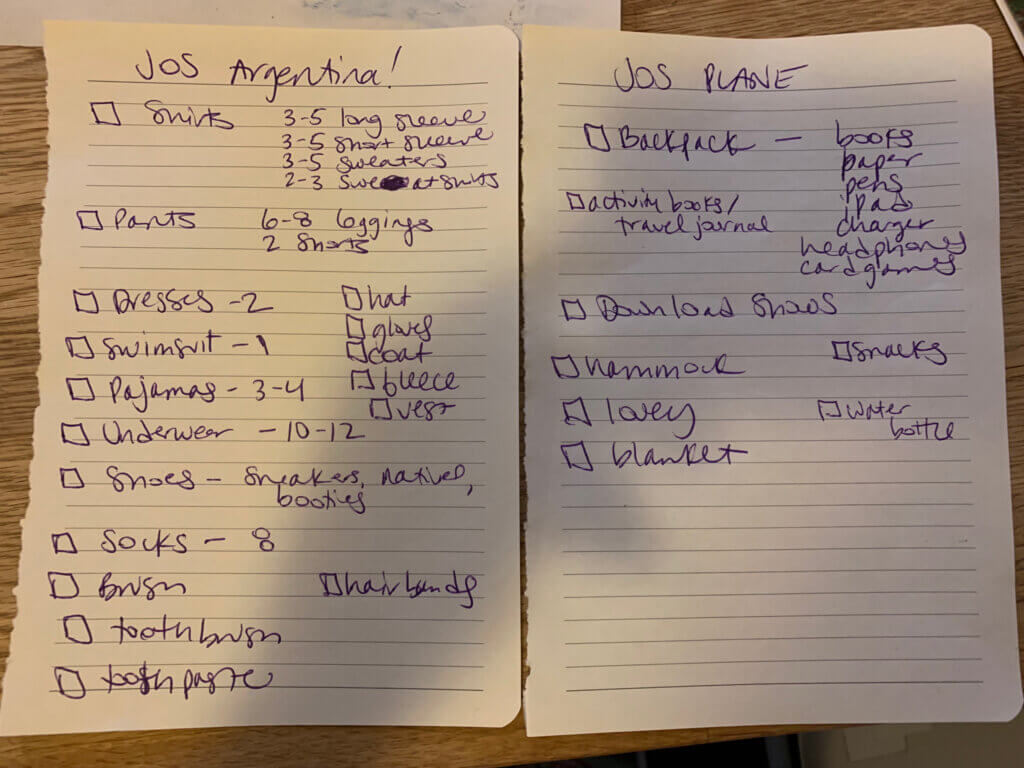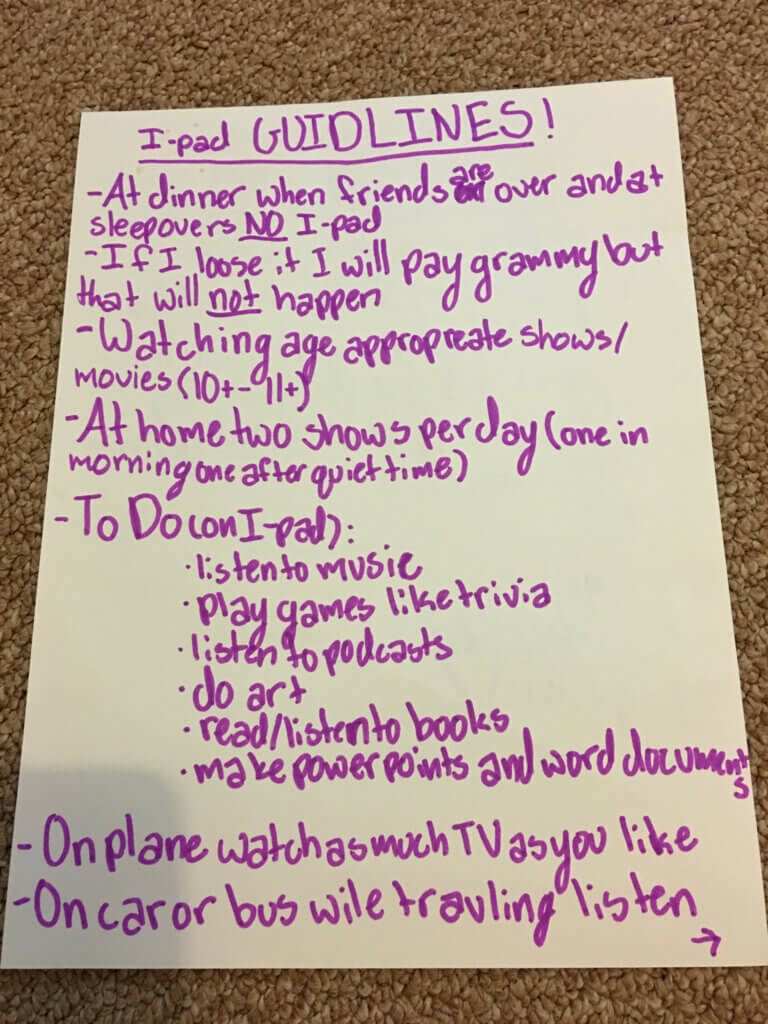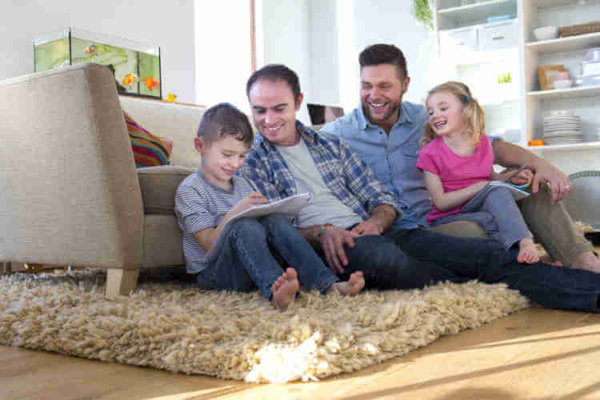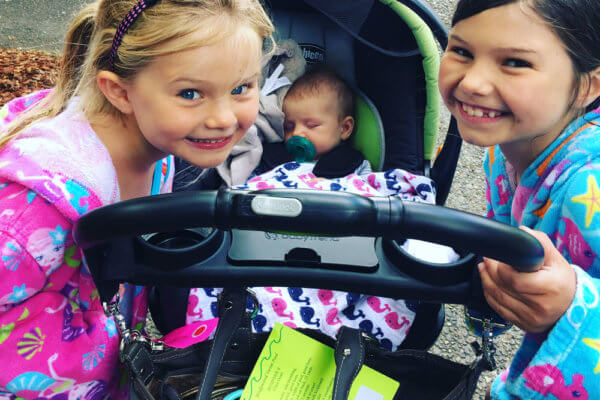Parenting Payback: Starting Young Reaps Rewards
I had this moment of panic as the plane left San Francisco on our way to Buenos Aires. Sandwiched between my ten and seven year old, I suddenly felt a physical ache as I began to fly further away from my two year old and husband back home. We would be gone two weeks and while the promised adventure of the eclipse, quality time with my sisters and mother, and connection with my older girls was sure to be worth it, nothing was guaranteed.
I had an apothecary in my suitcase just in case of illness, but on a larger scale I had no idea how the kids would hold up with nine flights, endless bus rides, three countries and a whole group of adults, er, star gazers at that.

In a last minute attempt to orient them to the geography and intent, my middle daughter and I had made an eclipse model out of aluminum foil, a flashlight, a tennis ball and a wire hanger. My ten year old created a PowerPoint with facts about Iguazu Falls. I hoped we were ready. We have always traveled domestically thanks to our jobs on the school schedule, but more importantly, they have had practice with life skills since the beginning, and these are what showed up this trip in full force:
Be open to trying new things
We try to use the language of growth mindset and encouragement as much as possible. When they were younger, this meant offering opportunities and specifically saying “I notice” to show they were seen when they tried new experiences, food, or activities. Whether it was a new swim class, a green smoothie, or starting a new puzzle, we emphasized that quality of trying something new regardless of the outcome. On the trip, there was delight in trying the empanadas (just trying, not necessarily always loving), seeing a tango show, and spending time looking at new constellations.
Start now: Offer new things just for the sake of trying without judgement for how they respond. Ask what new foods or experiences they want to try and start a running list.
Find the fun
I noticed that right away, on the hour long ride to the airport that first morning, they set the tone for fun with some rounds of the classic game “20 questions”. Embracing challenges, transitions and hard work with little ones can often be done by finding the fun. As parents, when we can connect and get into their world, cooperation is invited. This parenting tool is always up my sleeve, so in this way, the long layovers, late dinners, bus rides and walks through the city were not annoying to them- they were opportunities to find fun and connect with each other. A pack of cards went a long way, as did jokes, riddles, hand claps, staring contests, and a pen and some paper. When we all got weary and tired, big hugs, a piece of gum and quieter connections were more helpful. Other times busting out “Total Eclipse of the Heart” was enough to change the grown up attitudes and model the fun for the kids.
Start now: Pick one transition moment each day to find the fun by incorporating something your little one is really into: be the train or the dinosaur or the super hero. When you get in a power struggle about getting something done, ask your child “how can we make this fun?”
Executive functioning
Routines and play are pretty much the stuff of life those first few years, and they offer practice for building executive function skills: planning, organizing, creativity, flexibility, and focus. Packing and planning for a trip brings these skills together. As littles, I would sit with them while packing and allow them limited choices as they chose the simple things like socks, swimsuits, and books, then growing their capability quickly as they moved on to clothes or the backpack for the plane ride. With this practice, they were ready for this trip to just be handed a packing list. On the road, my ten year old was able to keep her suitcase and backpack organized, whereas my seven year old needed folding support and a separate system for her laundry. All temperaments are different, and in this way there were never expectations, just current skill levels and opportunities to grow confidence.

Start now: Include your little one with packing their own back of toys or snacks before going to a restaurant or outing. Give them a preview before directions, for example, “we are going to get packed for Grandma’s house so we will start with clothes, then move to toys and shoes. Are you ready for the first direction?”
Screens
This was a big one on the trip. The iPads were important to all of us, so we leaned on our systems. When they were little, there was a lot of practice with turning a show off and not freaking out. Believe it or not, the shows were also great for them to practice delay of gratification since it was only part of their routine and at the same time every day or later just weekends after responsibilities were finished. We discussed different iterations during family meetings and privileges evolved over the years. This made the guidelines conversation for our trip familiar; they were used to thinking for themselves, finding solutions and making agreements. They wrote up specific trip guidelines which included expectations for different scenarios and then we modified together until we both felt respected and heard. This resulted in things like plane rides= limitless, and restaurants= never. I used curiosity questions to help them understand how getting car (bus) sick is magnified with screens, and therefore landed in the “never” category for one of them, and we researched approved media on Common Sense Media for what to download. In this way, we had ZERO battles on the trip.
Start now: Get clear on when and how much screen time your little one has, without contingencies, and be consistent. Role play turning it off without a melt down. Let your child be the adult and you role play the child.
Family Relationships
This was by far the sweetest reward of the trip. As sisters, they have had a lot of practice with conflict and solving problems so were prepared to travel to a new continent armed with skills like listening, assertive communication, when to take a break, and finding a win-win solution. Traveling can be a pressure cooker, and what I found was the novelty of experience and buffer of the extended family brought out their own bond and respect for each other. By sharing a room at home, being allowed to work through conflict, and having practice with getting and being calm before finding a solution meant that there was a fluency in the way they spoke to each other on the trip. They could ask for space and solve problems while also finding hilarity in each other. And, being away from their youngest sister made them also miss her in a way they could never have imagined. That reunion was priceless.

Start now: Stay neutral during sibling conflicts without abandoning. Teach how to calm down before solving problems.
When I teach Positive Discipline classes to parents of young children, the challenge always comes up that it TAKES TIME. Here is the truth: there are no shortcuts. It DOES take time and an attitude adjustment to shift to a lens of teaching skills and offering time for training. I too have been through the meltdowns, rigidity, and the feeling that I’ve repeated myself a thousand times. In an age of parenting that already feels relentless and never ending, the reserve of patience and breaking down skills can certainly feel without reward. And yet, one day, you turn around and there they are: brushing their teeth, making their own lunch for school, putting their laundry away, and helping a sibling…all on their own. This is because of the time you put in with routines, connection and firmness, follow through, finding fun, consistency, and practice, yes practice. Read between the lines here:
messy mistakes and conflict = opportunities to practice!
So were we ready?
It turns out, we have been getting ready for years. What unfolded over the two week trip slowly made me realize that those everyday moments do pay off. The moments I was firm with follow through to build independence and executive functioning skills through routines, the moments I invited them to think for themselves to build capability, and the conflicts I stayed out of so they could work on their relationship. And my two year old? She got just as much practice at home building these same skills with her dad, and deepening their bond. The total eclipse might have only lasted a few minutes, but the lessons we learned will last for years.





Comments